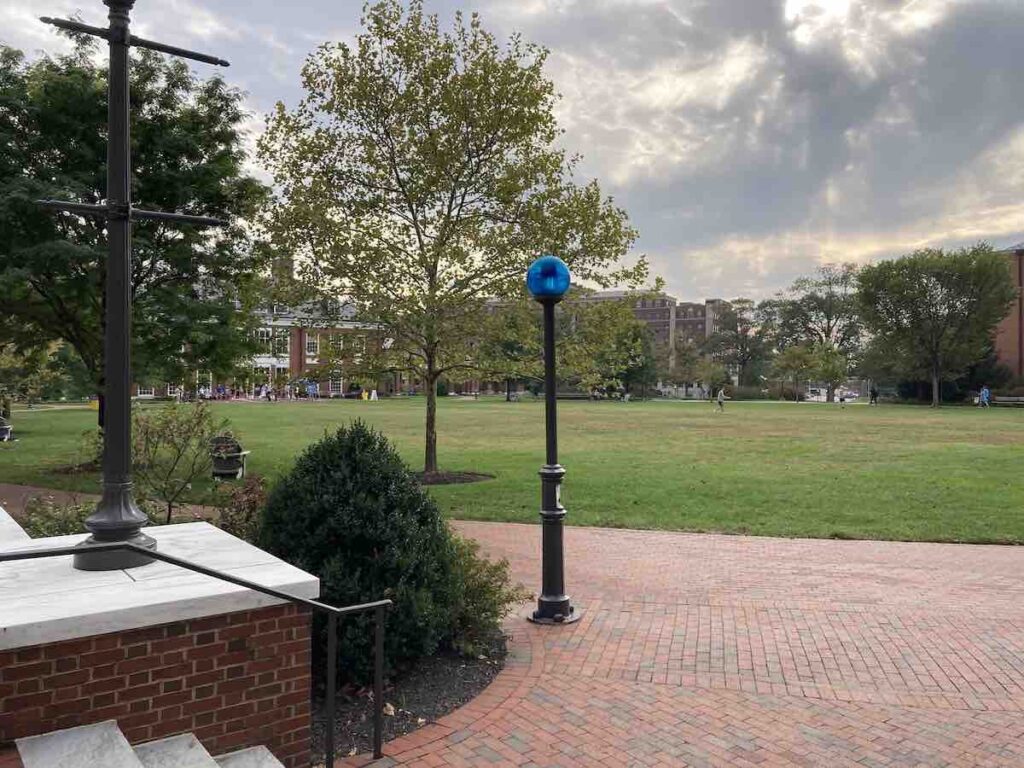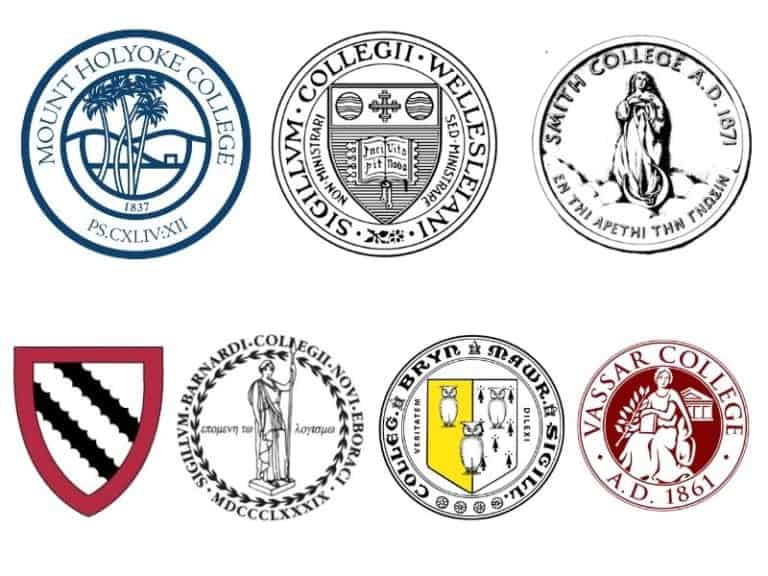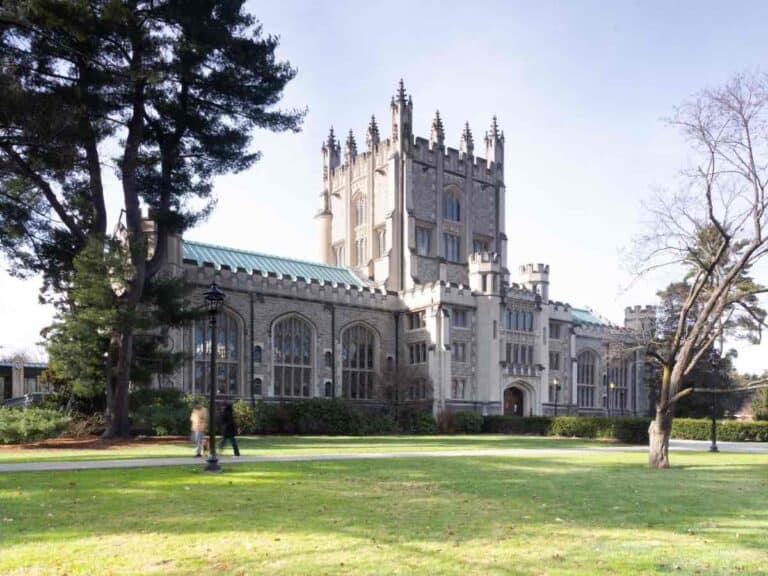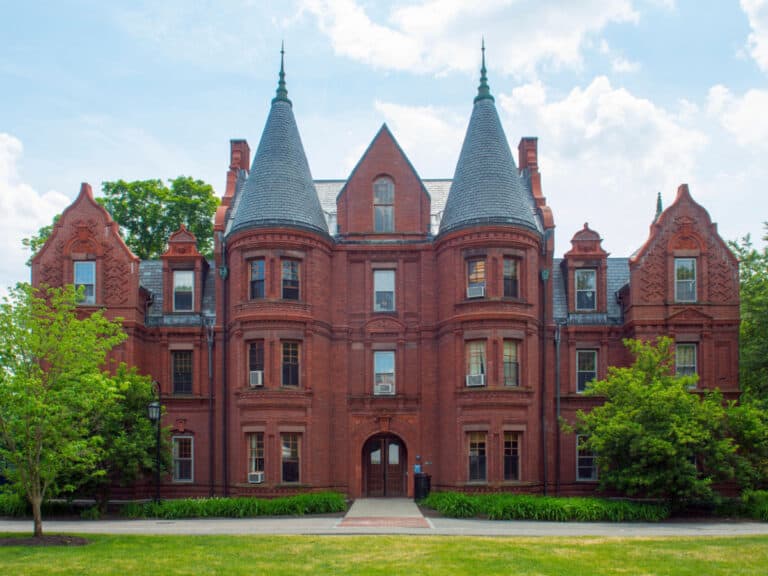Are Women’s Colleges Truly Safer? Breaking Down the Myth
According to the FBI, males commit nearly 75% of all crimes in the United States.
From disorderly conduct to murder, more males perpetrate offenses!
So, does this mean that all-female colleges are the safest colleges for females?
Generally, women’s colleges are safer academic institutions than their co-educational counterparts. In fact, up to 72% of female students feel safe on an all-women campus.
On the other hand, only 64% of them at private co-ed schools and only 37% of them at state schools feel safe.
Compared to other crimes, sexual violence is more prevalent at colleges.
Does this mean that a college-bound female teen like you should consider attending women-only colleges to avoid being on the receiving end of crimes the opposite sex commits?

Why Some Females Choose Women’s Colleges
In the 1960s, there were more than 200 women’s colleges in the United States.
Now, only less than 40 exist.
While some have shuttered completely, others have gone co-ed to deal with enrollment declines.
Many female students these days still prefer attending single-sex postsecondary institutions for various reasons, ranging from wanting to attend smaller classes to championing women empowerment and social justice.
Of course, lowering their risk of being crime victims is a common reason.
The Good About Attending Women’s Colleges
Let’s take a quick look at the most noteworthy advantages of attending a women’s college:
- Smaller class sizes. Studies show that small class sizes promote academic success, which is why it isn’t surprising that women’s colleges have higher graduation rates than co-ed schools.
- Deeper understanding of women’s issues. It’s not uncommon for the programs, curriculum, and resources at female colleges to focus on the unique challenges and experiences women in society face.
- Leadership building skills. With no male students in sight, women can take on as many leadership roles as they can without hesitation, preparing them to become strong and confident leaders.
- Gender freedom. Female students at women’s colleges can express and explore their individuality without fear of getting judged by the opposite sex for not meeting gender expectations and stereotypes.
The Bad About Attending Women’s Colleges
And now, here are some of the disadvantages of going to a women’s college you must know about:
- Limited campus diversity. A campus’ diversity isn’t all about having people from various ethnic, racial, cultural, and religious backgrounds but also different genders.
- Reduced social opportunities. Many social activities and events at co-educational schools are unavailable at women’s institutions, which eliminates or reduces social interaction and development.
- Fewer program options. All women’s colleges are some of the smallest academic institutions in the land, which is why the number of academic programs and majors to choose from is often limited.
- Challenging transitioning to a co-ed workplace. After spending four years with nothing but females, many graduates at women’s colleges may experience difficulty transitioning to their professional lives.

How Women Can Stay Safe on Campus
Women can maintain their safety and protection on campus in various ways.
It’s vital that they research on-campus crime-related matters while building a college list.
They may also consider checking out listings or rankings of some of the safest college campuses in the US.
Research Campus Safety
Many college-bound teens are too engrossed with acceptance rates, cost of attendance, and academic quality.
It’s important to consider them and others in the college selection process.
However, looking into campus crime rates is also a must — there is no point in getting into your dream school if you’d be six feet under before you earn your bachelor’s degree.
Whether you intend to go to a women’s college or a co-ed school, make your safety a priority.
The following are some tips on researching campus safety:
- Interview students and staff members. Ask about the safety experiences of students and employees during a campus visit or on the college’s official social media site.
- Check for emergency notification systems. On its website, check whether or not the institution offers an emergency text alert service to warn everyone of risks and dangers.
- Investigate prevention efforts. Ensure that the college employs various safety and protection methods, including emergency call boxes, nighttime escort services, crime prevention programs, and campus police.
- Research campus safety statistics. Thanks to the Clery Act, all colleges participating in the financial aid program must disclose campus crime stats annually.
- Visit the CSS website. CSS stands for Campus Safety and Security, and it’s by the Office of Postsecondary Education of the US Department of Education, designed to provide campus crime and fire data reports.
- Consider the surrounding community. Crimes can happen on and off school grounds, which is why it’s crucial that you also look into the safety of the campus’ neighboring areas.
Safest Colleges According to a Couple of Sources
It’s not easy to find the best-fit college where you can be at your safest.
Fortunately, there are lists of some of the safest colleges out there for both female and male students.
Especially if you want to be out of harm’s way without limiting your options to same-sex institutions, you’ll be more than happy to learn that there are many safe co-educational colleges and universities around.

Here are the top 25 safest colleges for females (and males, too) according to alarm.org:
| Institution | Location |
|---|---|
| Lincoln Memorial University | Harrogate, TN |
| South Georgia State College | Douglas, GA |
| Elon University | Elon, NC |
| Jackson State Community College | Jackson, TN |
| John Wood Community College | Quincy, IL |
| Virginia Western Community College | Roanoke, VA |
| Roane State Community College | Harriman, TN |
| Elgin Community College | Elgin, IL |
| University of Tennessee | Memphis, TN |
| Albany State University | Albany, GA |
| Mount Holyoke College | South Hadley, MA |
| Southern University and A&M College | Shreveport, LA |
| Rogers State University | Claremore, OK |
| Jefferson College | Hillsboro, MO |
| Laredo Community College | Laredo, TX |
| Dalton State College | Dalton, GA |
| Walters State Community College | Morristown, TN |
| Chattanooga State Community College | Chattanooga, TN |
| College of Coastal Georgia | Brunswick, GA |
| Florida SouthWestern State College | Fort Myers, FL |
| Mid-America Christian University | Oklahoma City, OK |
| Alvin Community College | Alvin, TX |
| Joliet Junior College | Joliet, IL |
| University of Maryland | Baltimore City, MD |
| Chattahoochee Technical College | Marietta, GA |
Niche also has a list of the top all-women’s colleges in America safety-wise, and here are the top 25:
| Institution | Location |
|---|---|
| Concordia University – St. Paul | Saint Paul, MN |
| Penn State Lehigh Valley | Center Valley, PA |
| Bay Path University | Longmeadow, MA |
| Penn State Scranton | Dunmore, PA |
| Southwestern Assemblies of God University | Waxahachie, TC |
| St. Catherine University | Saint Paul, MN |
| Joyce University of Nursing and Health Sciences | Draper, UT |
| Gwynedd Mercy University | Gwynedd Valley, PA |
| Molloy University | Rockville Centre, NY |
| University of Mount Olive | Mount Olive, NC |
| Metropolitan State University – Minnesota | Saint Paul, MN |
| UMass Global | Irvine, CA |
| McPherson College | McPherson, KS |
| Cairn University | Langhorne, PA |
| Stanbridge University – Orange County | Irvine, CA |
| Mount Aloysius College | Cresson, PA |
| National University | La Jolla, CA |
| Nebraska Methodist College of Nursing & Allied Health | Omaha, NE |
| Wilson College | Chambersburg, PA |
| The College of Westchester | White Plains, NY |
| Grace Christian University | Wyoming, MI |
| Freed-Hardeman University | Henderson, TN |
| University of the Cumberlands | Williamsburg, KY |
| St. Joseph’s University, New York | Brooklyn, NY |
| Everglades University | Boca Raton, FL |
Meanwhile, Yahoo! News says that these are the top five most dangerous colleges for women and everyone else:
| Institution | Location |
|---|---|
| University of Michigan at Ann Arbor | Ann Arbor, MI |
| Ohio State University | Columbus, OH |
| University of California, Berkeley | Berkeley, CA |
| Xavier University | Cincinnati, OH |
| University of Iowa | Iowa City, IA |
Read Next: 10 Unique Benefits of Women’s Colleges
Disclaimer: The views and opinions expressed in this article are those of the authors and do not necessarily represent those of the College Reality Check.





